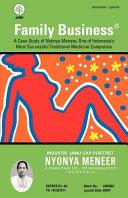
An Introduction to Indonesian Historiography
In the first major work on Indonesian historiography to have appeared in any language, twenty-two outstanding scholars survey available source materials in Asia and Europe and discuss the current state of Indonesian historical scholarship, the approaches and methods that might be fruitful for future research, and the problems that confront Indonesian historians today. The contributions which can be made to historical studies by other disciplines - such as economics, sociology, anthropology, and international law - are discussed by specialists in these fi elds. Problems of Indonesian historiography are presented not only from points of view of the diff erent social sciences, but also from those of historians who differ in approach and interpretation from one another. This unique work, now brought back to life in Equinox Publishing's Classic Indonesia series, proves to be great value to historians and social scientists as an introduction to both sources for and diff erent approaches to the history of an important part of the world. Edited by one of Indonesia's leading scholars, Soedjatmoko, as well as Mohamad Ali, G.J. Resnik and George McT. Kahin, An Introduction to Indonesian Historiography features contributions from John Bastin, C.C. Berg, Buchari, J.C. Bottoms, C.R. Boxer, L. Ch. Damais, Hoesein Djajadiningrat, H.J. de Graf, Graham Irwan, Koichi Kishi, Koentjaraningrat, Ruth T. McVey, J. Noorduyn, J.M. Romein, R. Soekmono, Tjan Tjoe Som, F.J.E. Tan, W.F. Wertheim and P.J. Zoetmulder.
- ISBN 13 : 9789793780443
- ISBN 10 : 9793780444
- Judul : An Introduction to Indonesian Historiography
- Pengarang : Soedjatmoko,
- Kategori : History
- Penerbit : Equinox Publishing
- Bahasa : en
- Tahun : 2006
- Halaman : 427
- Halaman : 427
- Google Book : http://books.google.com/books?id=Pz5MNfCbOSwC&dq=intitle:An+Indonesian&hl=&source=gbs_api
-
Ketersediaan :
BY G. J. RESINK 0 Research Professor, Faculty of Law and Social Sciences,
University of Indonesia, Jakarta THE history of international law in Indonesia has
an old and rich reality and is a young and poverty-stricken science. We shall
speak first of its age and richness, insofar as this reality can be shaped briefly into
words. Following this, we shall describe its youth and its poverty, which subject
will be swiftly exhausted. Finally, we shall touch on the history of international law
as a ...



